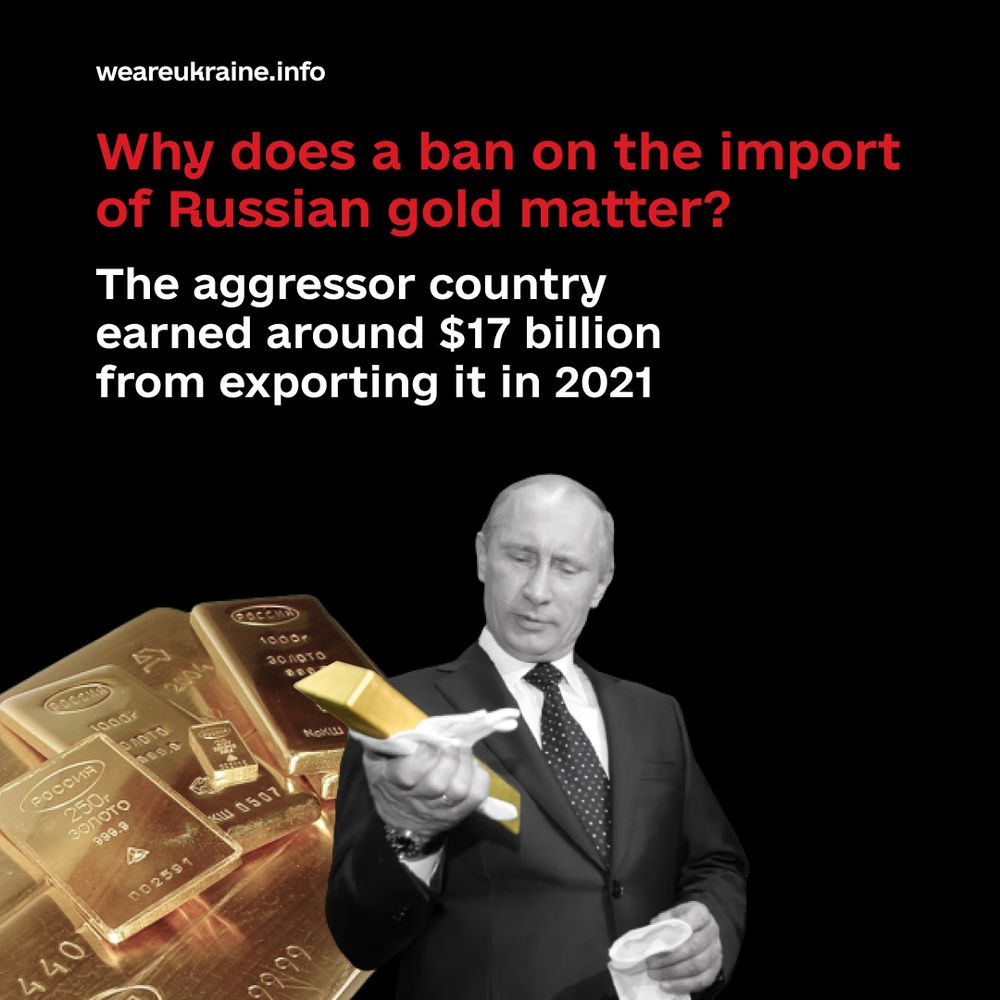
In the seventh package of sanctions, Ukraine expects to see transactions with Russian gold banned. The UK, Japan, and Canada are already set to ban Russian gold imports. The United States has already imposed sanctions. The European Union is working on a new plan to ban imports of Russian gold. Why does this ban matter?
In 2021, Russia was the 2nd largest gold producer in the world (after China) with a share of about 9.5%, and 302 tons out of 346 tons of gold Russia sold abroad, according to the KSE Institute. Given the average price of gold in 2021, Russia must have earned around $17 billion from gold export last year. It mainly exported gold to the UK (88% of exports), the world’s largest gold hub, and Switzerland, the second-largest hub in the gold market. Deliveries to other countries were small as EU countries did not buy gold bars directly from Russia.
In 2022, despite several months of active warfare and evident Russian atrocities in Ukraine, some countries still continue to buy gold from the aggressor state, Switzerland being the latest example. Switzerland imported more than 3 tons of gold from Russia in May 2022, according to the KSE Institute.
Though Russian exports of gold have almost sunk to zero since March 2022, events like this highlight the necessity of sanctions on gold. If Russia won’t be able to sell the gold it produces abroad — it will lose a significant source of income and, thus, funding for the war in Ukraine.